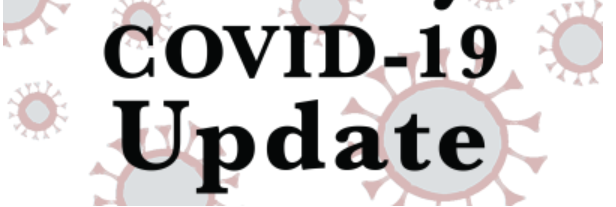Former restrictions from the height of the COVID-19 pandemic have been lessened as NMU sees the lowest reported cases of COVID-19 on campus this semester.
For the first time since 2020, isolation dorms previously located on campus have been discontinued. Dr. Christopher Kirkpatrick, medical director of the NMU Health Center, says this is due to several factors like lack of use and declining cases.
“We saw a pretty steady decline in the number of students that were coming to the lab and into the clinic,” Kirkpatrick said. “And with it, the number [of cases] have been pretty low as well.”
The true number of cases on campus is unknown due to at-home testing, as it is typically more accessible than lab testing. And, because of new vaccination and testing guidelines in Michigan, lab testing for those exposed (not infected) to COVID-19 is currently unavailable. This is due to Emergency Use Authorization (EUA).
At the height of the COVID-19 pandemic, vaccinations, boosters and testing methods were made available to the public through EUAs. COVID-19 treatment methods, as of last year, have been around long enough to establish solid safety data, Kirkpatrick said. Combined with the continuing decline in cases, COVID-19 product manufacturers lost EUAs and now have to go through the formal testing and approval process again.
This new change in policy limits the ability of laboratory testing for those that have been exposed to COVID-19.
“Due to Emergency Use Authorization, I was able to place protocols that allowed you to get tested at the lab, even if you were just exposed to someone with COVID-19,” Kirkpatrick said. “Now, in Michigan, with the expiration of the EUAs, you can only get tested at the lab with the available testing if you are infected.”
NMU’s Health Center has currently paused the administration of COVID-19 vaccines and boosters, yet is set to continue again with the release of the next vaccine. This new product cannot be administered to a patient if they have been given another product with a timespan of roughly two to three months prior. Kirkpatrick has paused administration of older vaccines to avoid any conflicts between those and newer vaccinations.
Despite these changes in vaccine administration and isolation requirements, many protocols for those infected with COVID-19 still remain the same. Kirkpatrick said that CDC recommendations still suggest at least five days of isolation if testing positive for COVID-19.
Self-assessment can be used to determine continued isolation, especially for those with other health complications. Kirkpatrick suggested fluids and rest, what he refers to as a “tincture of time.”
Kirkpatrick expressed happiness over the decline of cases on campus and hopes to see the trend continue. As population immunity is expected to continue, campus’ restrictions and protocols will hopefully continue to decline.
“It’s been a kind of evolution with the COVID-19 response,” Kirkpatrick said. “One thing that helps is that we’ve experienced it now … and we all have a better vocabulary about it.”
In a continued response to campus health, the NMU Health Center is offering free masks and at-home testing kits within hours of operation. NMU Public Safety also offers free KN95 masks to students and is open 24 hours a day, every day of the week. Further protocols and information are available to students at NMU’s Safe on Campus webpage. For more in-depth or situation-specific information, Kirkpatrick suggested contacting the Office of the President, located at 602 Cohodas Hall.


























